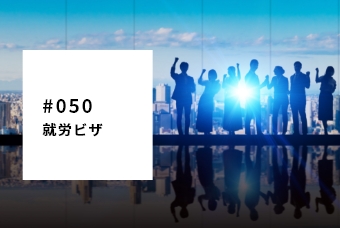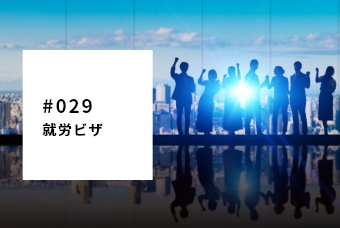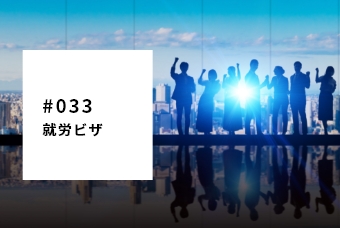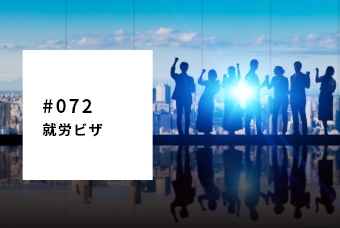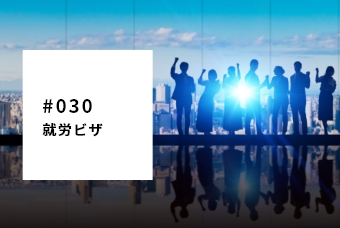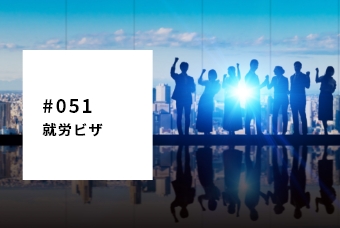What is the crime of engaging in an activity other than that permitted under the status of residence previously granted, which is charged when engaging in a non-statutory activity?
In this article, we will explain the crime of engaging in an activity other than that permitted under the status of residence previously granted. This article may give important viewpoints for companies hiring foreign human resources as well as for foreigners working at companies in Japan.It is a little difficult to understand the crime of engaging in an activity other than that permitted under the status of residence previously granted, as there are many technical terms in this article, but this article provides necessary knowledge to personnel in charge of foreign human resources and to foreigners who wish to work properly, so please try to read this article.
Index
1. What is the crime of engaging in an activity other than that permitted under the status of residence previously granted?
The statuses of residence in Japan (so-called visas) are defined as the classification of activities, etc. that foreigners can engage in after entering Japan or while staying in Japan. For example, a skilled labor visa is necessary if you work as a chef, a business manager visa is necessary if you run a company, and a professor visa is necessary if you work as a university professor.
In other words, if your activity does not fall under any of the classified activities, your activity will be considered as a non-statutory activity. As a result, you will not be able to obtain a visa. For example, if a foreigner has obtained a work visa to work as an interpreter, but actually engages in simple work in a warehouse or serves at a restaurant, such activities do not fall under any of the activities; therefore, such activities are non-statutory activities and violate the Immigration Act.
Such foreigner will be charged with the crime of engaging in an activity other than that permitted under the status of residence previously granted.
As mentioned earlier, foreigners are expected to engage in activities permitted under their statuses of residence. In case that you engage in activities not permitted under your status of residence, if such activities include the management of business involving income or if you receive compensation for such activities, you may be charged with the crime of engaging in an activity other than that permitted under the status of residence previously granted.
This means that foreigners can only earn income within the scope of their status of residence, and if they violate this rule, they will be charged with the crime of engaging in an activity other than that permitted under the status of residence previously granted.
There is one thing to add in relation to the above, which is that activities that do not involve any income are not subject to this crime. For example, let’s say there is a foreigner who works for a company during the day time and goes to school at night. You may think that this foreigner needs to obtain some kind of permission from an immigration office in order to study at school while staying in Japan with a work visa.
However, the answer is no. This foreigner does not earn any income from the activity as a student; therefore, such activity is not subject to the crime of engaging in an activity other than that permitted under the status of residence previously granted.
2. Correct understanding of the crime of engaging exclusively in an activity other than that permitted under the status of residence previously granted
In fact, the crime of engaging in an activity other than that permitted under the status of residence previously granted is classified into exclusive type and non-exclusive type.
In this chapter, let’s take a look at the exclusive type in details.
Article 70, paragraph 1, item 4 of the Immigration Act stipulates the said crime.
Article 70
(1) A person falling under any of the following items is to be punished with imprisonment with or without work for not more than 3 years or a fine not exceeding 3 million yen, or is to be subject to the cumulative imposition of imprisonment with or without work and a fine:
(iv) a person who is clearly found to be engaged solely in activities related to management of business involving income or activities for which they receive remuneration in violation of the provisions of Article 19, paragraph (1).
In summary, this Article says that if it is clear that you are exclusively engaging in an activity not permitted under your status of residence (non-statutory activity), you will be punished for that.
“Exclusively” here means that you are illegally engaging in an activity not permitted under your status of residence (non-statutory activity) as the main activity. In other words, you are mainly conducting an activity not permitted under your status of residence (non-statutory activity), and so your activity in Japan has been substantially changed from the activity originally permitted under your status of residence.
An example of such case is that Mr. A was employed by a hotel as staff for the front desk and has obtained a work visa, but he only cleans guest rooms and serves customers in the food and beverage department. Another example is that Ms. B has obtained a work visa to engage in restaurant marketing business, etc., but she is only serving customers at a restaurant.
Next, “it is clear” here means that it is obvious from the statements of the foreigner concerned or related parties and evidence materials that the foreigner was illegally engaging in an activity not permitted under his/her status of residence (non-statutory activity).
As you can see from above explanations, if you illegally engage in an activity not permitted under your status of residence (non-statutory activity) “exclusively” and “clearly” and “get paid” for such activities, you will be charged with the crime of engaging exclusively in an activity other than that permitted under the status of residence previously granted.
Then, what happens if you engage in activities not permitted under your status of residence, but not “exclusively”?
To answer that, in the next section, we would like to explain the crime of engaging not exclusively in an activity other than that permitted under the status of residence previously granted.
3. Correct understanding of the crime of engaging not exclusively in an activity other than that permitted under the status of residence previously granted
First, let’s take a look at the provision about the crime of engaging not exclusively in an activity other than that permitted under the status of residence previously granted.
Article 73
Except for cases to which the provisions of Article 70, paragraph (1), item (iv) apply, a person who is engaged in activities related to management of business involving income or other activities for which they have receive remuneration in violation of the provisions of Article 19, paragraph (1) is punished with imprisonment with or without work for not more than 1 year or a fine not exceeding 2 million yen, or is to be subject to the cumulative imposition of imprisonment with or without work and a fine.
Now, we will explain this Article, like we did in the previous section.
“Article 70, paragraph (1), item (iv)” sets forth the crime of engaging exclusively in an activity other than that permitted under the status of residence previously granted as explained in the previous section. Therefore, Article 73 is applied to cases where foreigners engage in activities not permitted under their statuses of residence (non-statutory activities) which do not fall under the exclusive type.
Thus, the crime of engaging not exclusively in an activity other than that permitted under the status of residence previously granted can be applied to wide range of activities.
Here is a question. A foreigner having a visa to work as an interpreter can only work within the scope of the status of residence. Is this true?
To answer that, we would like to introduce the official guidelines.
According to the guidelines published by the Ministry of Justice in December 2015, the whole activities performed during the period of stay are the basis of the judgement on whether a foreigner’s activities fall under any of the statuses of residence listed in the Immigration Act.
Therefore, for example, in case that training is given to a foreigner right after joining the company, if the period and purpose of such training are reasonable, the foreigner will not be immediately charged with the crime of engaging in an activity other than that permitted under the status of residence previously granted, even if there were times when the activities originally permitted were not performed at all.
Then what happens if a foreigner temporarily withdraws from the activities originally permitted and engages in different activities (non-statutory activities)? The above guidelines explains a case where a tourist group checks in while a foreigner is working at the front desk, and the foreigner is suddenly asked to carry the group’s luggage to their rooms.
In this case, the foreigner’s action is not necessarily illegal according to the guidelines. If carrying luggage to rooms becomes the main activity of the foreigner and it is not a temporary withdrawal from the original activity, there is a possibility that the foreigner is subject to the crime of engaging not exclusively in an activity other than that permitted under the status of residence previously granted.
4. What are the penalties for the crime of engaging in an activity other than that permitted under the status of residence previously granted, which includes deportation?
We have seen the crime of engaging in an activity other than that permitted under the status of residence previously granted (exclusively and not exclusively).
Now, what are the penalty for this crime?
In this section, we will look at penalties for the exclusive type and non-exclusive type.
(1) In case of the crime of engaging exclusively in an activity other than that permitted under the status of residence previously granted
If you fall under the crime of engaging exclusively in an activity other than that permitted under the status of residence previously granted, you will be punished with imprisonment or imprisonment without work for not more than 3 years or a fine not exceeding 3 million yen, or will be subject to the cumulative imposition of imprisonment or imprisonment without work and a fine (Article 70, paragraph 1, item (iv) of the Immigration Act).
Even if you are not imposed any punishment by court decision, your action may fall under the grounds for deportation under Article 24, item (iv) (a) of the Immigration Act if you are found to have exclusively engaged in an activity not permitted under your status of residence.
In other words, there is a risk that you will be punished with cumulative imposition of imprisonment with or without work and a fine. Not only that, you will fall under the grounds for deportation by committing the crime, so the penalties are pretty heavy.
(2) In case of the crime of engaging not exclusively in an activity other than that permitted under the status of residence previously granted
In case of committing the crime of engaging not exclusively in an activity other than that permitted under the status of residence previously granted, you will be punished, according to Article 73 of the Immigration Act, with imprisonment with or without work for not more than 1 year or a fine not exceeding 2 million yen, or be subject to the cumulative imposition of imprisonment with or without work and a fine.
Previously, the fine was 200,000 yen or less, but because of the increase in malicious cases of engaging not exclusively in an activity not permitted under the relevant status of residence, the fine was raised to 2,000,000 yen under the Immigration Act revised in 2004 in order to strengthen the financial sanction and increase the deterrent effect.
In addition, if you are punished with imprisonment without work or punished with something heavier than such imprisonment for committing the crime of engaging not exclusively in an activity other than that permitted under the status of residence previously granted, you will fall under the grounds for deportation in Article 24, item (iv) of the Immigration Act.
5. Summary
What did you think?
Some parts may have been difficult to understand.
In this article, we focused on the penalties, etc. imposed on foreigners when they are charged with the crime of engaging in an activity other than that permitted under the status of residence previously granted.
One question arises here. What are the responsibilities of companies that have hired foreigners accused of the crime of engaging in an activity other than that permitted under the status of residence previously granted? Aren’t companies charged with any crime when their foreign employee are charged with the crime of engaging in an activity other than that permitted under the status of residence previously granted?
In fact, there is a possibility that companies will be charged with the crime of promoting illegal work or the crime of aiding and abetting to engage in activities not permitted under the status of residence previously granted. In this regard, please read, “What is the crime of promoting illegal work, which is charged even when committing it without knowing it?“
The Immigration Act requires companies employing foreign human resources and foreigners working for such companies to have correct knowledge and an accurate understanding.
However, due to the repeated revisions of the Immigration Act and the establishment of various guidelines, etc., the environment surrounding the employment of foreigners is changing every moment. Therefore, expert knowledge is required to understand the whole situation and legal system concerning the employment of foreigners.
Please feel free to contact us if you are the company side wishing to hire foreign human resources in a legitimate manner by complying with laws and regulations, or if you are a foreigner having a problem with your work visa.
For companies, we propose optimization of employment of foreign human resources in a way that suits each company.







